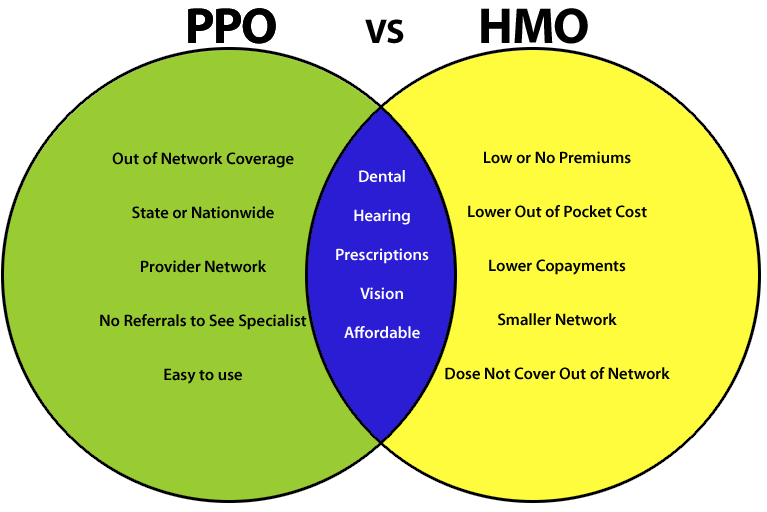 This post was originally written by Tony Armstrong and posted on the nerdwallet.com blog. You can view the original post here.
This post was originally written by Tony Armstrong and posted on the nerdwallet.com blog. You can view the original post here.
Understanding the key components of HMO vs. PPO plans is crucial when deciding between health insurance policies. Although choosing the best coverage for you and your family may require a little bit of homework, doing this extra research will help you secure the most cost-effective treatment. Here’s a look at what differentiates these two popular coverage options.
Health Maintenance Organization (HMO) Plans
An HMO health insurance plan consists of a network of doctors and hospitals from which you can receive treatment. Visiting a physician or facility outside of that group of providers means that you have to foot the entire bill yourself, except in the case of an emergency. As such, patients enrolled in HMO plans generally have fewer options when it comes to choosing doctors and hospitals.
HMO plans can also be limiting because they require you to select a primary care physician who will refer you to specialists when you need additional treatment. Your insurance won’t cover specialist visits without a referral, which helps ensure that they’re in-network and that the specialists that you’re referred to have contracted discounted rates with your health insurance plan. Be advised, though, that the time it takes to get a referral can sometimes delay treatment.
People enrolled in HMO plans pay monthly premiums, which means that annual health costs tend to be rather predictable. What’s more, instead of paying up to your deductible before your insurance kicks in, you’ll usually only need to cover the copay. The dollar amount of that copay will depend on the type of care that you receive and the specific plan that you have. Generally speaking, HMO plans are cheaper than PPO plans.
HMO health insurance plans are good for: individuals or families looking for low-cost coverage and not worried about a limited network or getting referrals for specialist visits.
Preferred Provider Organization (PPO) Plans
Unlike HMOs, PPO plans offer customers a more extensive network of doctors and hospitals to choose from. A person enrolled in a PPO plan isn’t restricted to a single primary care doctor, which also means that he or she can visit specialists without first getting a referral.
You won’t be responsible for paying the entire bill if you receive treatment from a doctor who isn’t in your network, as these services may be partially covered by your PPO provider. However, in-network care will typically cost you much less. This is the PPO provider’s way of encouraging its patients to visit doctors and hospitals in their network.
PPO plans grant their users more freedom, a perk that typically results in a relatively hefty price tag. Premiums for PPO plans tend to be higher than those of HMOs and most PPO plans also charge deductibles.
PPO health insurance plans are good for: individuals or families looking for more flexibility in terms of provider network and specialist choice.
Factors to Consider in Choosing HMO vs. PPO
When the time finally comes to select a health insurance company and plan, be sure to put your and your family’s specific medical needs under the microscope. You’ll want to reflect on how much and what type of treatment you’ve received in past years. Though it’s impossible to predict every medical expense, being aware of certain trends can help you make a more informed decision.
If, for example, you rarely visit the doctor and are simply focused on keeping your medical expenses at a minimum, you’re probably best off with an HMO plan. Just keep in mind that you’ll be restricted to a limited number of in-network physicians and facilities in your area, so check out the network before opting for a plan.
If, on the other hand, you can afford higher premiums and already know that you’ll need to visit specialists frequently because of existing health conditions, a PPO plan will offer you the flexibility that you want and/ or need. PPO plans are also helpful if you’re constantly on the go, as you’ll have a better shot of receiving care that’s fully covered by your provider when you’re on the road.












